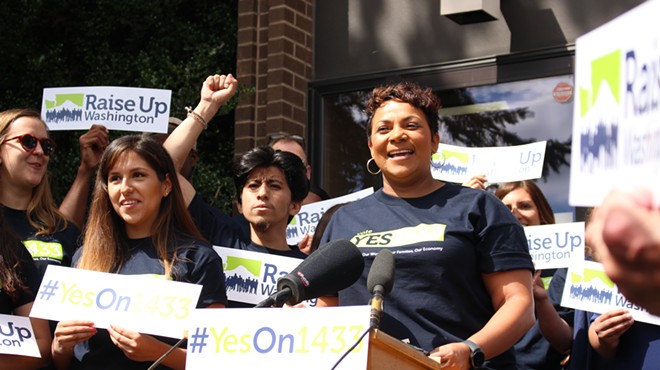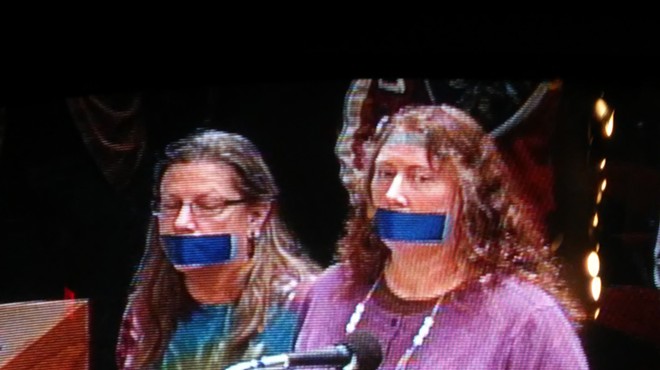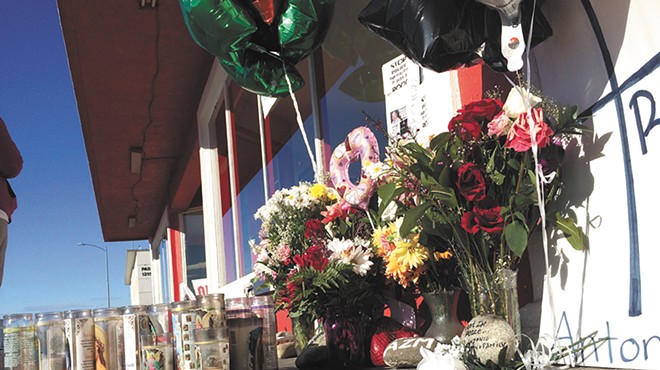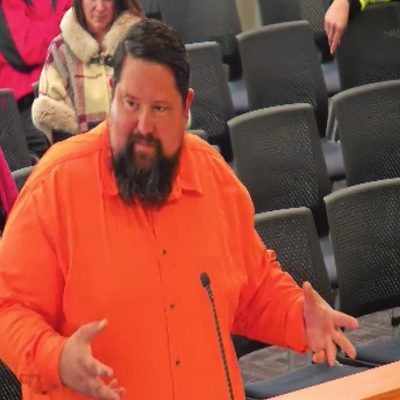Tuesday, April 21, 2015
Council moves toward paid sick leave, changing how mayor's salary is set
Last night, Spokane City Council took initial steps toward passing a paid sick leave ordinance and also voted to put a measure on the August ballot intended to curb rises in the mayor's salary.
The council voted to form a working group to get feedback from stakeholders on a future ordinance that would mandate that employers offer their workers paid time off to deal with illness or domestic violence. The 12-member working group would be comprised of representatives from businesses, ranging from food service to healthcare, unions, the Spokane Regional Health District and the Spokane Human Rights Commission.
Spokane is likely to join cities like Portland and Seattle, which already have paid sick leave policies. Several representatives from business associations showed up to to express their opposition to the whole idea.
Michael Cathcart, government affairs director for the Spokane Homebuilders Association, told the council that a survey sent out to his association's members revealed that many worried the policy would be burdensome. According to Cathcart, 84 percent responded that a sick leave policy would increase costs to consumers, 70 percent said they'd have to reduce employees and 33 percent said they'd reduce employee hours.
“I hope that this work groups take into account whether or not we actually need a sick leave policy,” he told council.
Bruce Beckett, government affairs director for the Washington Restaurant Association, asked the council to include a “broader spectrum” of the business community and to examine some “fundamental assumptions” a sick leave policy is based on. He said that many restaurants allow employees to swap shifts to cover for each other when they're sick.
Others showed up to support the policy.
“Everyday we see people make the choice to either lose money or possibly lose their job to stay home with a sick child or stay home to recuperate, as we suggest they do, or maybe go to work ill or send their children to school ill,” said Bill Lockwood, medical director of the Community Health Association of Spokane.
Mike Fagan and Mike Allen, the council's two conservative members, voted against even creating the work group.
“You know, frankly, I think it's a little sad that we are spending so much time in this country and in particularly here in Spokane on stuff like this where we're trying to figure out how we take entry-level jobs and make them living-wage jobs,” said Allen. “To me, that doesn't make sense.”
Councilman Jon Snyder, a supporter of the policy, responded by saying the state or federal government would likely enact a sick leave law and Spokane should act now to ensure it has a policy tailored to the city's needs.
The council also voted to place a charter amendment on Spokane's August primary ballot that would have the mayor's salary set by the Salary Review Commission. Under the current city charter, the mayor's salary must be equal to the highest paid city employee. There's broad agreement that the mayor's $170,000 salary is too high.
Snyder attempted to amend the measure to require the commission to use $150,000 as a base salary for the mayor. He reasoned that this arrangement would make it easier to cut the mayor's salary. However, his amendment was voted down.
Tags: Michael Cathcart , Jon Synder , Mike Fagan , Mike Allen , Bruce Beckett , Michael Lockwood , paid sick leave , News , Politics , Image





















